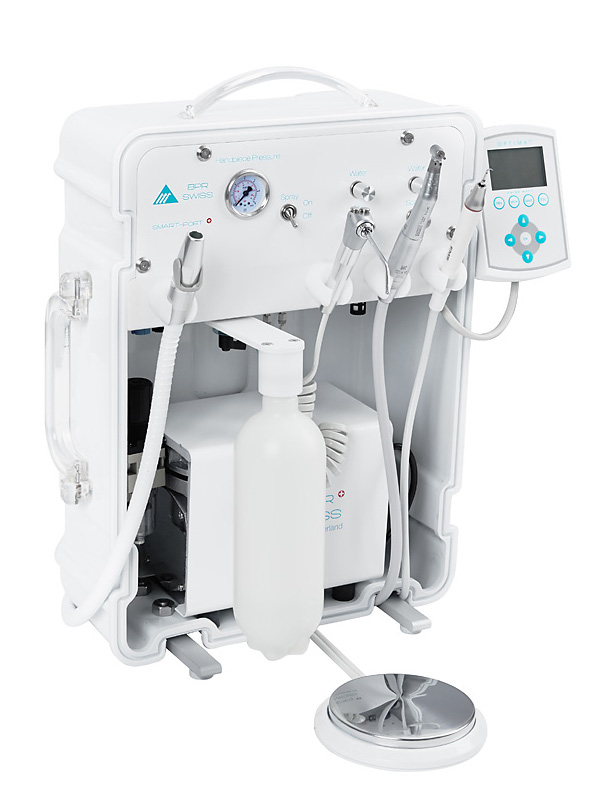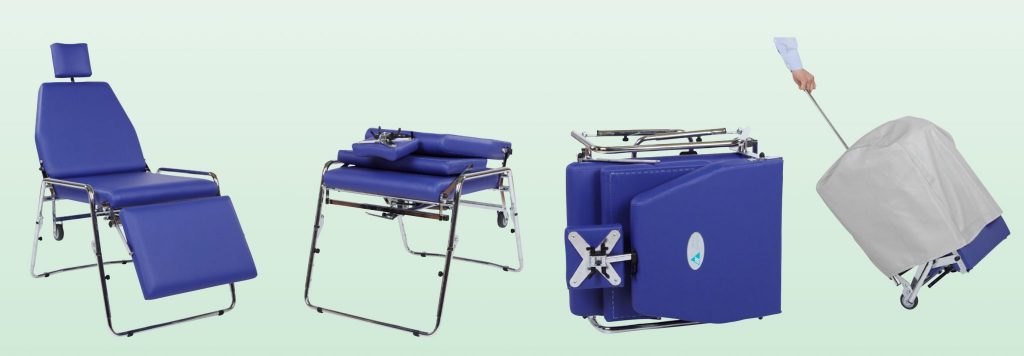Optimising access for the elderly
NewsPosted by: Dental Design 13th June 2020

Even at the best of times, the elderly population can face difficulties regarding access to dental care. In recent times, the challenges have increased significantly. Older people, especially the over 65s, will be among the most vulnerable in society. Getting the essential dental care and support they need is crucial.
High need
The data suggests that older people are more likely to be edentulous, have caries and experience periodontal disease.[i] This is logical given that as the body ages, its ability to repair itself is reduced.[ii] Increased age is also associated with reduced strength and hand dexterity,[iii] which can significantly impact the effectiveness of people’s dental health routines at home.
Further still, older people are at greater risk of developing a host of health conditions that in turn increase the risk of dental health problems. For instance, dementia is closely associated with age – while 20% of 65-69-year-olds have dementia in the UK, that figure rises to 60% for people aged 75-79.[iv] As you’ll know, there is a large body of evidence suggesting that dementia is a risk factor for poor oral health.[v] Other examples of health conditions more closely linked with older generations than young include cardiovascular disease,[vi] strokes[vii] and osteoporosis.[viii] All of these can have an impact on oral health, presenting new challenges for older people and those that support them to overcome.
With approximately 11 million people in the UK over 65, there are many who may need a little extra support in maintaining their health and wellbeing. In fact, it has been estimated that at least 1.8 million people aged 65 and over could require urgent dental attention due to pain, oral sepsis or decay at any one time.[ix]

Access difficulties
So, the demand for dental care among the older age groups is clear. However, there are several potential barriers preventing these people from receiving the support they need. In terms of physical and logistical challenges, older people are more likely to depend on public transport to attend the dental practice and could therefore be affected by limited or delayed services. They may be living with a physical disability that makes it very difficult or even impossible for them to move around independently. Elderly or infirm patients who rely on family members could also be restricted regarding the times and days they can attend appointments.
For anyone with mental health conditions or cognitive impairments, attending the dental practice could be even more challenging. Not only might some of these patients be less able to recognise oral health problems when they occur, but they could also struggle to understand the oral hygiene advice provided, resulting in poor compliance.
Another possible barrier to treatment could be access to NHS care. It is common knowledge that NHS places are limited in certain areas of the UK. For those people who depend on their pension for income, private treatment might not be an option. Finding a dental practice that can provide care under the NHS and within a reasonable locality is therefore crucial, but could be challenging.
Of course, we couldn’t look at this topic without at least mentioning the COVID-19 situation that has swept the UK (and, indeed, the entire globe). Older people were among the first groups to be advised to stay at home. It was recommended that they went out only for essential purchases or medical care. The knock-on effect of this is that there are now thousands of older patients who need to rearrange routine check-ups they may have missed. That’s not to mention anyone who had to postpone agreed treatment or dental hygiene appointments.

Optimising access
It was only recently that the CQC brought to light the inadequate dental care provided to residents in care homes. Now more than ever, it is crucial to optimise access to essential dental care to everyone, especially the elderly and infirm. Finding ways to ensure they receive the dental treatment and support they need is vital.
For those patients who are unable to visit the dental practice in person, what we can do? For a start, there may be the possibility of virtual consultations if patients have access to web-based technology or software, or a friend/family member who can set this up. However, for most, they will require domiciliary care. To ensure that you use the most reliable products and equipment to look after these patients, consider the industry-leading solutions from BRP Swiss, available through J&S Davis. The comprehensive portfolio includes various mobile clinical carts, dental units and dental chairs. All easily portable and of a premium quality, these solutions ensure you can take quality dental care to your patients when you need to.
For more information on the industry-leading products available from J&S Davis, visit www.js-davis.co.uk, call 01438 747 344 or email jsdsales@js-davis.co.uk
Author: Steve Brown Director of Sales and Marketing J&S Davis Ltd
[i] Public Health England. What is known about the oral health of older people in England and Wales. A review of oral healthy surveys of older people. December 2015. https://www.gov.uk/government/publications/oral-health-of-older-people-in-england-and-wales [Accessed March 2020]
[ii] Salvi SM, Akhtar S, Curies Z. Ageing changes in the eye. Postgrad Med J. 2006 Sep; 82(971): 581–587. doi: 10.1136/pgmj.2005.040857
[iii] Martin JA, Ramsay J, Hughes C, Peters DM, Edwards MG. Age and grip strength predict hand dexterity in adults. PLoS One. 2015; 10(2): e0117598. Published online 2015 Feb 17. doi: 10.1371/journal.pone.0117598
[iv] Alzheimer’s Society. Research. Risk factors and treatments – we discuss the evidence. Understanding risk factors for dementia. https://www.alzheimers.org.uk/research/risk-factors-and-treatments-we-discuss-evidence/understanding-risk-factors-dementia [Accessed March 2020]
[v] Daly B, Thompsell A, Sharpling J, Rooney JS, Hillman L, Wanyonyi KL, White S, Gallagher JE. Evidence summary: the relationship between oral health and dementia. British Dental Journal. December 2017. 223; 846-853
[vi] NHS. Health A to Z. cardiovascular disease. https://www.nhs.uk/conditions/cardiovascular-disease/ [Accessed March 2020]
[vii] Stroke Association. Are you at risk of stroke? https://www.stroke.org.uk/what-is-stroke/are-you-at-risk-of-stroke#Main%20risk%20factors%20for%20stroke [Accessed March 2020]
[viii] Royal Osteoporosis Society. Causes of osteoporosis and broken bones. https://theros.org.uk/information-and-support/understanding-osteoporosis/causes-of-osteoporosis-and-broken-bones?gclid=EAIaIQobChMIxq_Nzbi16AIVy7TtCh0C2gxGEAAYASAAEgKt5vD_BwE [Accessed March 2020]
[ix] The Faculty of Dental Surgery of The Royal College of Surgeons of England. Improving older people’s oral health. 2017. https://www.rcseng.ac.uk/news-and-events/media-centre/press-releases/older-people-oral-health/ [Accessed March 2020]
No Comments
No comments yet.
Sorry, the comment form is closed at this time.



